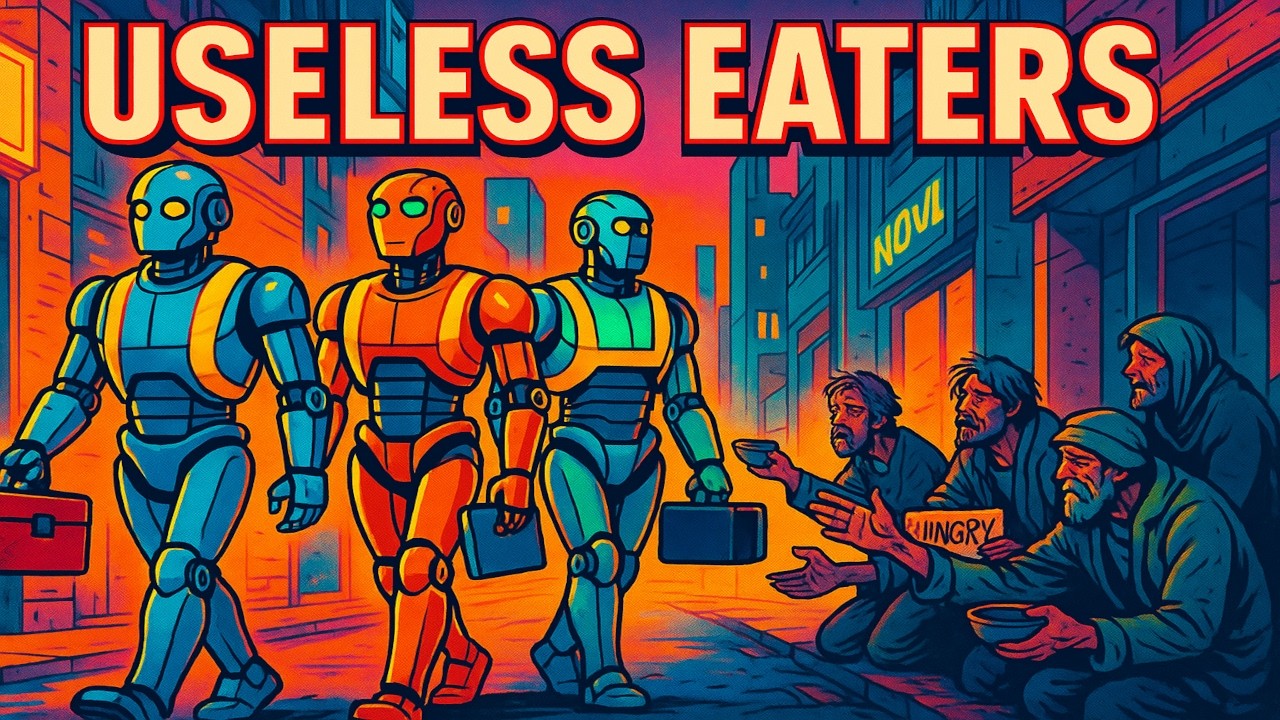The video delves into the deeper psychological fear behind concerns about AI and automation, highlighting that the core anxiety is about losing human value and purpose in society rather than just job loss. It emphasizes the need to rethink societal values and the social contract to ensure individuals maintain a sense of meaning and fairness beyond traditional labor roles in an automated future.
The video explores the deep-rooted anxieties people have about the future of AI, automation, and robotics, particularly focusing on the psychological fears underlying these concerns. While many worry about job loss or AI dominance, the speaker suggests that these fears stem from a more fundamental dread related to human value and purpose in society. This anxiety is not just about practical outcomes but about the existential fear of becoming irrelevant or “useless” in a world increasingly dominated by machines.
A key concept discussed is the idea of the “useless eater,” a term the speaker is hesitant to use due to its controversial connotations but acknowledges its relevance in public discourse. This term reflects the fear that as AI and robots take over labor, humans who no longer contribute economically might be seen as expendable or burdensome. The speaker clarifies that while this scenario is a hypothetical extreme, it captures the essence of the fear that automation could create a new class of “slaves” in the form of machines, leaving many humans without a defined role or value.
The core of the issue lies in the social contract between individuals and society, which is traditionally based on a reciprocal exchange: people contribute labor and receive compensation and social validation in return. Humans, being inherently social creatures, derive much of their self-worth from their perceived value to the community. Therefore, the fear is not just about losing a job but about losing the ability to validate one’s existence and maintain a sense of purpose within the social fabric.
This anxiety is deeply tied to notions of fairness and self-worth. Even those who may be critical of society still desire recognition and value from it because of our evolutionary social nature. The potential breakdown of this exchange threatens to undermine the fundamental human need for meaning and belonging. The speaker emphasizes that the fear is less about the work itself and more about the loss of social validation that work currently provides.
In conclusion, the video invites viewers to reflect on these psychological dimensions of the AI and automation debate. It suggests that addressing these fears requires more than economic solutions; it demands a rethinking of how society values individuals beyond traditional labor roles. The speaker leaves the audience with an open question about how we might navigate this transition and maintain a sense of fairness and purpose in a rapidly changing world.
